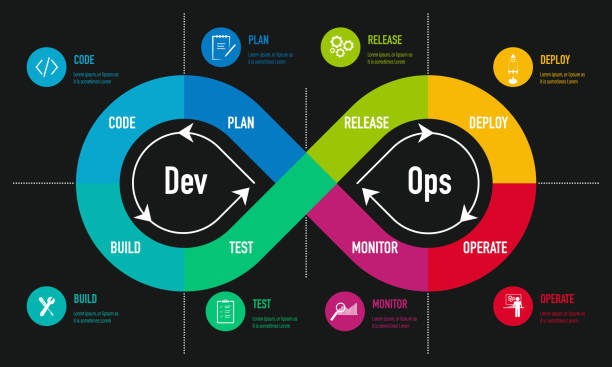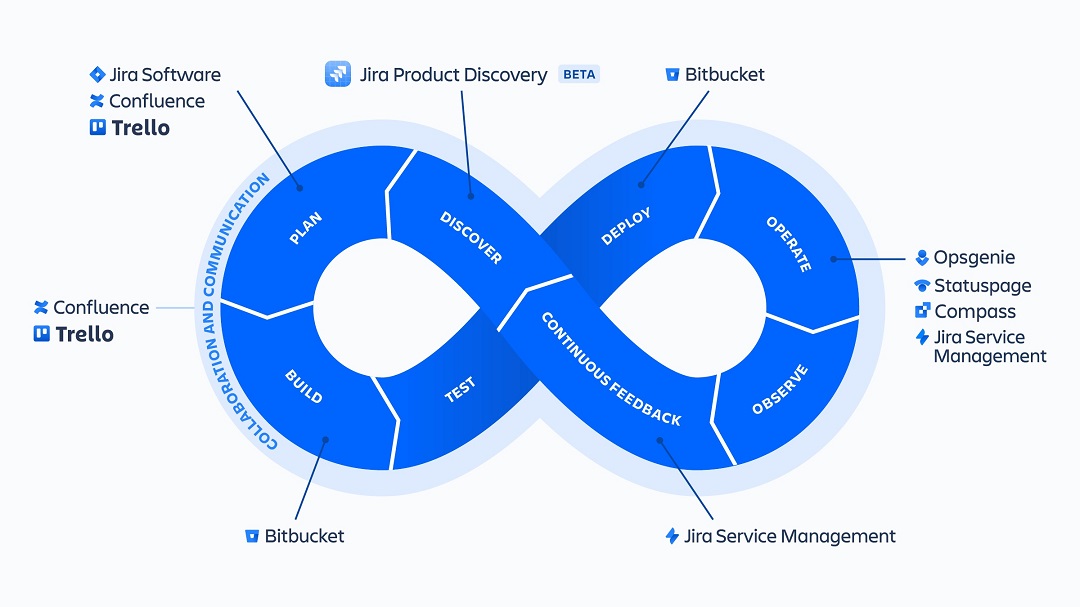How DevOps is revolutionizing the way companies develop and deliver software
Published

The role of DevOps in disrupting

Those : depositphotos.com
Introduction:
In today's fast-paced digital world, companies are under increasing pressure to deliver software quickly, reliably and with high quality. However, traditional organizational silos between development and operations teams can hinder collaboration, slow development cycles, and lead to inefficiencies. This is where DevOps comes in as a transformative approach that breaks down these silos and enables synergies between teams to deliver software faster, more efficiently and with better results. In this blog post, we will explore how DevOps is revolutionizing the way companies develop and deliver software. The focus is on breaking down silos and fostering collaboration to increase success.
The evolution of software delivery:

Those : istockphoto.com
Historically, development and operations teams have worked in separate silos within companies, with little interaction or collaboration. Development teams focus on writing code, while operations teams are responsible for deploying and maintaining software in production environments. This siled approach can lead to communication gaps, delays, and inefficiencies, resulting in delayed software delivery, higher costs, and lower quality results. However, as companies strive to become more agile, responsive and customer-focused, traditional software development and delivery methods are no longer effective. This has paved the way for the emergence of DevOps, a cultural and technological shift that promotes collaboration, automation and continuous improvement throughout the software development lifecycle.
The power of collaboration

Those : istockphoto.com
DevOps is not just about tools and technologies, but also about fostering a collaborative culture that encourages cross-functional teams to work toward common goals. By breaking down silos and fostering collaboration, DevOps enables development and operations teams to collaborate seamlessly, share insights, and address challenges together. This collaboration fosters a shared understanding of requirements, priorities and constraints, resulting in better decision making, better coordination and faster delivery cycles. DevOps allows teams to work in sync and align their efforts to deliver software that meets users' needs while meeting high standards of quality, security, and stability.
Accelerate software delivery:

Those : informationweek.com
One of the key benefits of DevOps is the acceleration of software development cycles. By automating repetitive tasks, streamlining processes, and leveraging continuous integration and continuous delivery (CI/CD) practices, DevOps enables companies to release software more frequently, more reliably, and with shorter lead times. In this way, companies can react quickly to changing market requirements, customer feedback and competitive pressure. With DevOps, companies can achieve faster time to market, gain a competitive advantage, and deliver value to their customers faster.
Changing the game with DevOps:

Those : itprotoday.com
DevOps is not just a methodology or a set of tools, but a new way of thinking that challenges traditional ways of working and encourages companies to embrace change. By fostering a culture of experimentation, learning, and innovation, DevOps enables teams to continually improve and adapt to evolving business needs. DevOps promotes a blame-free culture that focuses on identifying and fixing problems rather than assigning blame, creating a safe environment for experimentation and improvement. DevOps also promotes the use of data and metrics to measure and optimize performance, allowing companies to make data-driven decisions and continually refine their software development and delivery practices.
Creating a DevOps Culture:

Those : invensislearning.com
Building a DevOps culture requires a shared commitment to collaboration, continuous improvement, and an attitude of accountability and ownership. Companies can create a DevOps culture by encouraging open communication, providing opportunities for cross-training and skills development, encouraging knowledge sharing, and recognizing and rewarding collaboration and innovation. Companies should also promote transparency and visibility and ensure teams have access to relevant information, metrics and feedback to make informed decisions. It's important to create a safe environment where teams feel empowered to share ideas, raise concerns, and learn from mistakes without fear of reprisal. Leaders play a critical role in fostering a DevOps culture by leading by example, supporting experimentation, and providing teams with the resources and support necessary to succeed.
Overcoming Challenges and Achieving Advantages:
Implementing DevOps can come with some challenges, such as: B. Resistance to change, lack of coordination between teams and the need for cultural change. However, the benefits of DevOps are worth the effort. Companies that adopt DevOps benefit from improved collaboration, faster time to market, higher software quality, lower costs and higher customer satisfaction. DevOps enables companies to iterate quickly, learn from feedback, and continually improve their software development and delivery processes, resulting in more reliable and efficient software releases.
Case Study: Company X’s DevOps Transformation:
To illustrate the impact of DevOps in real-world scenarios, let's take a look at Company X, a software development organization that was struggling with silos and inefficient processes. The development team faced delays in deploying code to production due to a lack of coordination with the operations team, resulting in missed deadlines and unhappy customers. Company X decided to adopt DevOps as a cultural and technological change.
Company Cross-functional teams were formed that were responsible for end-to-end software delivery from development to production deployment. It also implemented automation tools for building, testing, and deploying software and introduced CI/CD practices to enable continuous delivery. The teams worked closely together and used shared metrics and feedback loops to measure and optimize performance. They also created a blame-free culture where team members were encouraged to learn from mistakes and share ideas for improvement.
The results were remarkable. Company Defects and incidents decreased and teams were able to respond quickly to issues and resolve them in a timely manner. Collaboration and communication improved, resulting in better understanding of requirements and faster decision making. Company X also experienced higher employee morale and engagement as team members felt empowered and motivated to contribute to the company's success.
Conclusion:
DevOps is transforming the way companies develop and deliver software by breaking down silos, encouraging collaboration, and driving a culture of continuous improvement. By adopting DevOps principles and practices, companies can accelerate software delivery, improve quality, and increase customer satisfaction. DevOps requires a shift in thinking, a cultural shift, and the introduction of automation and CI/CD practices. However, the benefits of DevOps are worth the effort, allowing businesses to gain a competitive advantage and deliver greater value to their customers in today's fast-paced digital world.
In summary, DevOps is a game-changer for organizations looking to break down silos, foster collaboration, and streamline their software development and delivery processes. By adopting DevOps, companies can achieve synergy between teams, accelerate software delivery, and deliver high-quality software that meets customer needs. Are you ready to transform your business with DevOps? Start by breaking down silos, encouraging collaboration, and establishing a culture of continuous improvement. Then you're well on your way to revolutionizing the way you develop and deliver software.








